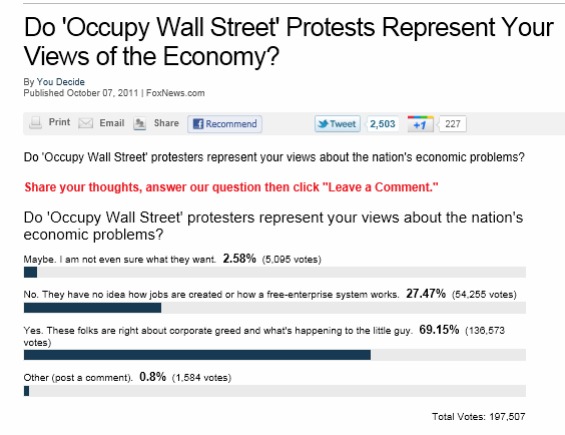rolling stone

As Pope Francis marks the fourth anniversary of his revolutionary papacy, the pontiff apparently finds himself besieged on all sides by crises of his own making: an open “civil war” in the Catholic Church and fears of schism, mounting opposition from the faithful, and a Roman Curia so furious with his reforms that some cardinals are plotting a coup to topple him.

Have you ever blamed yourself for some horrible thing that happened to you? When I was diagnosed with breast cancer at the age of 45, I immediately started to wonder what I had done to cause my body to betray me like that. Maybe I’d eaten the wrong foods or not taken good enough care of my health – I know it wasn’t exactly logical, but I needed to find a cause and “me, myself, and I” turned out to be a convenient target. Thank God that my pastor, now of blessed memory, responded forcefully. “Don’t even go there,” he said, shutting me down before I’d gotten more than a few words out of my mouth. “You are not to blame.” He told me that bad things happen sometimes for no good reason and I should focus on my healing and not waste energy blaming myself. That was that for me. I trusted him so much that I stopped blaming myself right then and there.
A Culture of Victim Blaming
What does this have to do with victims of rape on college campuses? Rape is a really, really bad thing and rape victims desperately want to understand why this awful thing happened to them. The news coming out of college campuses seems full of accusations and rumors of college women being victimized by their classmates. Just as I did after my cancer diagnosis, victims can make the same mistake I did and blame themselves. It doesn’t help that too often the response they get from the culture around them blames them too. The term “rape culture” is being used because it conveys that the problem of rape is compounded after the assault when victim suffering is denied and perpetrators excused. What rape victims need – especially young, vulnerable college-age women – is a response as forceful and believable to them as my pastor’s was for me. To their credit, college campuses are wrestling with finding the right combination of policies and responses to convey loud and clear, “You are not to blame.”
Counseling services and the formation of student support groups on campus have gone a long way toward removing the stigma of blame from victims. And many campuses have for years honored the risk of post-traumatic responses by including so-called “trigger warnings” on syllabuses. These warnings alert students to reading assignments, movies, or discussions that might trigger a post-traumatic response. Students can choose to opt out of those classes and/or assignments, which goes a long way toward honoring their stories and demonstrating concern for their wounds. Survivor groups have also reacted strongly when other types of triggers are not acknowledged appropriately by the university. For example, a debate on the Brown University campus about the term “rape culture” included one panelist who was likely to criticize the term, which ignited protests from a student group seeking to make the campus a safe place for rape victims. The university agreed to create a safe place on campus for victims to recover from the trauma of having their viewpoints “invalidated.”

The fact that the journalistic “scandal” got more public attention than the original story should give us pause. And the narrative that is playing out in the story’s wake — the one that says the college campus rape crisis is nothing more than a hoax perpetrated by the left — is disturbing.

KISS may have been on the cover of the April 10 issue of Rolling Stone, but the most eye-opening headline may have been the one that proclaimed: “Gay, Mormon & Finally Out.”
After years of denials and lyrics that obscure the issue, Glenn declared proudly that he is gay — and still a devout member of The Church of Jesus Christ of Latter-day Saints.
“I believe and I have faith and I was born with this,” Glenn told The Salt Lake Tribune in one of the first interviews since coming out.

Labels can be helpful when, for instance, applied to cans of soup or barrels of toxic waste. But they are less so when affixed to human beings – particularly when labels are meant to summarize, indelibly, one’s spiritual identity.
In a recent Rolling Stone interview, Marcus Mumford, the 26-year-old lead singer of the wildly successful British band Mumford & Sons, raised the hackles of religious folks (in some quarters) when he declined to claim the “Christian” label as his own.
You see, Marcus is the son of John and Eleanor Mumford, who are the national leaders of the Vineyard Church in the U.K. and Ireland, an arm of the international evangelical Christian Vineyard Movement. Last year, he married actress Carey Mulligan, whom he’d met years earlier at a Christian youth camp.
And the music of Mumford & Sons, for which Mumford is the main lyricist, is laden with the themes and imagery of faith – often drawing specifically upon the Christian tradition. They explore relationships with God and others; fears and doubts; sin, redemption, and most of all, grace.

Last month, Rolling Stone magazine featured Bill McKibben's latest plea for climate sanity on its cover. And despite every pundit's whining proclamation that climate change is such a buzz-kill, Bill's article got forwarded, commented, tweeted, and otherwise pushed around the Internet more than anything else RS has put out lately.
So somebody out there is paying attention to climate change — even if the elites can't seem to grow a spine about it.
What I liked about Bill's article was that he lays out a clear, 3-pronged strategy for really doing something about climate change while there's still time.
If we do these three things, there's a possibility that we can reverse climate change, restore health to our skies, earth, and oceans, and move forward into a future where our grandkids can not just survive, but thrive.
Here's the plan.

For three straight years, there have been more than three job seekers to every available job. Nineteen statistics about the poor in America that will absolutely astound you (or should.) Poll shows most Americans see deepening wealth gap. OpEd: Juliet Eilperin of Think Progress believes climate change could be a "wedge issue" in 2012 elections. Rolling Stone magazine on "How the GOP Became the Party of the Rich." And Obama leads with Latino voters going into 2012, while GOP frontrunners face backlash on immigration.
